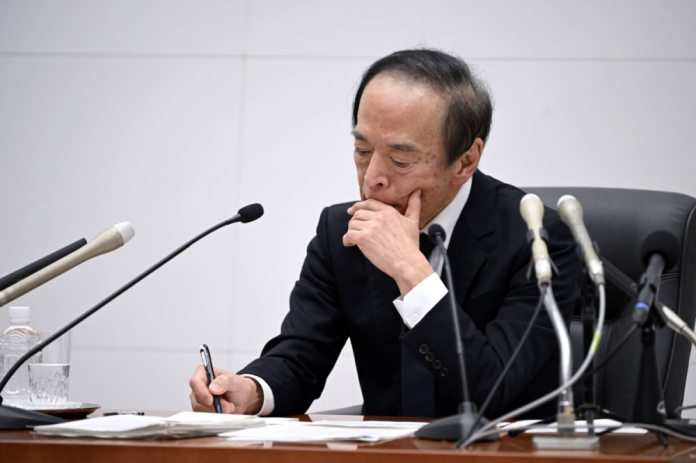The Bank of Japan (BOJ) is poised to maintain its benchmark interest rate at 0.5% on Thursday, while signalling heightened risks to economic stability from escalating US trade measures, according to Reuters.
BOJ Governor Kazuo Ueda, fresh from G20 talks in Washington, acknowledged the “significant uncertainty” posed by US tariffs on global growth, as the International Monetary Fund (IMF) slashed its 2024 forecasts.
While the central bank remains committed to incremental rate hikes if inflation trends toward its 2% target, sources indicate it will downgrade growth projections and push back its timeline for sustainably hitting the inflation goal.
Of particular concern are the 25% US tariffs on Japanese car exports, a cornerstone of the economy. Analysts warn these measures could derail wage growth, with major exporters—previously drivers of this year’s record pay rises—now considering pausing increases in 2025.
Though the BOJ aims to avoid overt dovishness to prevent yen depreciation, its cautious stance risks prolonging currency pressures. US Treasury Secretary Scott Bessent recently emphasised “matters pertaining to exchange rates” in bilateral talks, reflecting Washington’s scrutiny of Japan’s monetary strategy.
I was pleased to follow up on previous reciprocal trade discussions between the United States and Japan, as well as to discuss matters pertaining to exchange rates.
However, BOJ policymakers fear premature tightening could stifle fragile consumption, particularly if trade tensions dampen business investment. With about 40% of Japan’s exports reliant on manufacturing, prolonged tariffs threaten to erode corporate profitability and wage momentum, key pillars of the bank’s inflation strategy.
